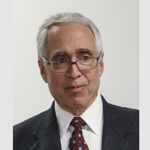Preparing A Workforce For War
![]()
s the Bush administration readies the nation for a long war against international terrorism, it must soon decide how to build a federal workforce that can wage that war effectively abroad and maintain essential programs at home.Virtually every federal agency is having trouble recruiting and holding talent, and almost all face a huge number of retirements over the next few years. Despite this vulnerability, the administration is divided between two visions of reform.
One vision of the future comes from Office of Management and Budget Director Mitch Daniels, the former Reagan White House aide who sees a future in which private contractors might replace hundreds of thousands of federal employees. Daniels has already ordered agencies to put as many as 100,000 jobs up for competition between federal workers and the private sector over the next two years. And that is just the start. Daniels is said to favor competition of almost half of the federal government's 1.8 million nonmilitary jobs. If a federal job can be found in the Yellow Pages, says Daniels, it should be competed.
Secretary of Defense Donald Rumsfeld sees a very different future. Rumsfeld believes that the answer to the coming retirement wave is to create the kind of jobs that will pull talented Americans toward government careers. Convinced that it no longer makes sense to move military officers every two years and force them to retire just when they are hitting their stride in their 40s or 50s, Rumsfeld and his undersecretary for personnel and readiness, David Chu, are ready to question the "up or out" system that was invented after World War II to clear the armed services of its excess generals and admirals. And convinced that the civilian personnel system does more to protect poor performers than reward excellence, they are ready to embrace radical reform of the civil service's rules.
Rumsfeld has one advantage over Daniels in pursuing his vision of a 21st century workforce. Unlike the rest of government, his department has invested millions studying what makes its employees tick. Drawing upon decades of research by RAND, a nonpartisan think tank based in Santa Monica, Calif., and Washington, the department has the data to support a new personnel system that would hire, fire and promote based on what it would take to maintain the world's strongest defense. That investment is starting to pay off as the department prepares itself for what will be a very long war.
Rumsfeld believes that the problem at the Defense Department is that good people are trapped in bad systems. Having split his career between the private and public sectors, Rumsfeld also understands that both sectors have plenty of poor performance. The secret to high performance is not scaring employees with talk about the loss of jobs, but in building a personnel system that recruits, promotes and rewards people on the basis of performance, not longevity.
Rumsfeld is not the only Cabinet officer who who believes in a strong career civil service and the need for deep reform in how government manages its human capital. Two of Rumsfeld's Cabinet colleagues, Treasury Secretary Paul O'Neill and Secretary of State Colin Powell, are no more likely to contract out jobs based on a ready-fire-aim approach than is Rumsfeld. Like Rumsfeld, they are taking a critical look at reforms that will make government careers more attractive to talented Americans, including the kind of radical flattening that the President clearly favors. The Internal Revenue Service, which is part of the Treasury Department, is already doing the tough planning required to reshape the federal hierarchy, and Powell has made rebuilding the Foreign Service a top priority.
Daniels and his colleagues at OMB have shown little interest in acknowledging the poor performance of contractors in a host of recent government failures, most notably in the airport security breakdowns of Sept. 11. Daniels would do well to talk with Rumsfeld, O'Neill and Powell about what really needs to be done to make federal jobs attractive to the best candidates.
The first step is to stop the random contracting out under way across government. The second is to admit that government needs the kind of radical reform that the new Office of Personnel Management director, Kay Coles James, appears to be moving toward when she talks about doing away with the antiquated classification system. "The work has changed and the worker has changed," she recently argued, "and we can't continue paying people in essentially the same way we did when the system was created in the 1940s."
Government must also take aggressive action against its poor performers, remove needless layers of both political and career management, address the persistent pay gap between public and private jobs, and rethink the very nature of government careers. It is time for this kind of comprehensive reform.
Paul C. Light is vice president and director of governmental studies at the Brookings Institution.
NEXT STORY: A Ray Of Hope In A Dark Moment







